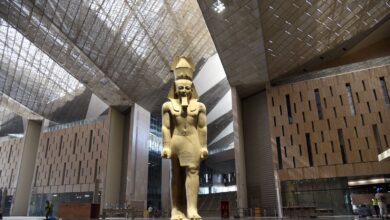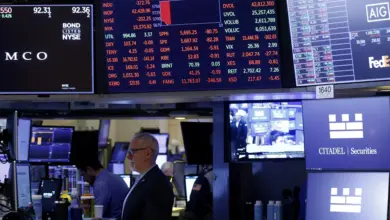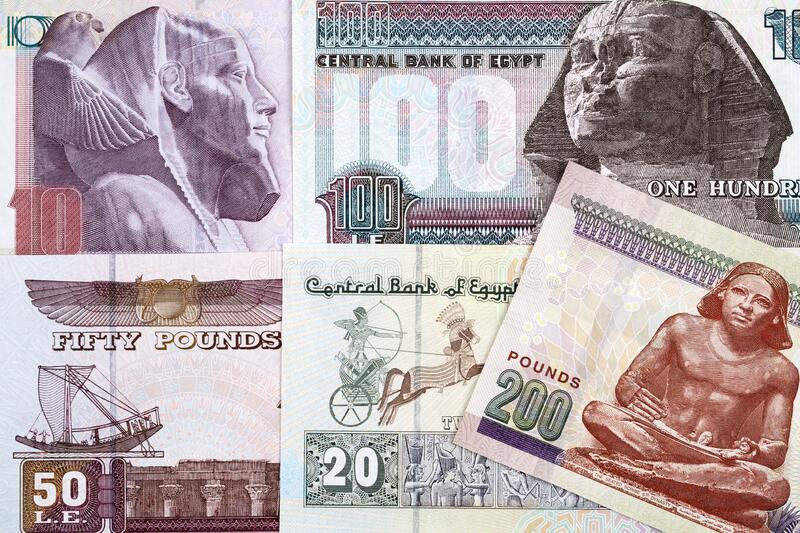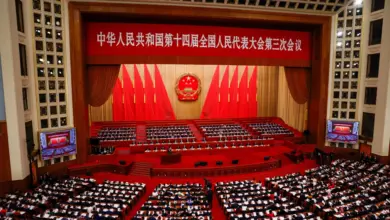The country may struggle on for the rest of the year without an IMF loan, enduring a summer of fuel shortages and power cuts rather than risk an explosion of unrest by implementing subsidy cuts and tax increases before parliamentary elections.
An International Monetary Fund mission left Cairo on Tuesday after 12 days of talks without an agreement on a proposed $4.8 billion loan needed to ease a deepening economic crisis.
Both sides reported progress and said talks would continue, but diplomats and analysts said a weak, dysfunctional government, lacking economic expertise, seemed unable to commit to relatively modest reforms sought by the global lender. Toxic domestic politics make any deal fraught.
Planning Minister Ashraf al-Araby said the negotiations had been difficult and focused notably on measures to compensate the poor for higher energy prices when fuel subsidies are cut.
He predicted an agreement either when Egyptian ministers attend this week's IMF/World Bank meetings in Washington, or sometime in May if the IMF delegation returns.
But veteran economic policymakers and market analysts are more skeptical.
"They go through the motions of pretending they are serious about an IMF deal, but actually they are not," former Finance Minister Samir Radwan told Reuters.
"You don't have anybody of weight among the economic ministers, I'm afraid to say," he said in a telephone interview. "There is no serious expertise except for the Central Bank of Egypt governor, who is keeping the show on the road."
Egypt reached an initial agreement with the fund last November but Islamist President Mohamed Morsy suspended it less than three weeks later, rescinding sales tax increases amid political violence over the extent of his powers.
Stopgaps
Radwan, who served for 10 months after the 2011 uprising that ousted former President Hosni Mubarak, negotiated a $3.2 billion IMF loan on minimal conditions, but the ruling military council, unwilling to submit to foreign influence, vetoed it.
He said Egypt badly needed the IMF money now to stabilize the economy, hit by dwindling foreign reserves and plummeting tourism and investment, and to restore investors' confidence — a view broadly shared by economists.
However, $5 billion in stopgap finance from Qatar and Libya secured last week, and the prospect of more from Arab friends and possibly from emerging BRICS nations — without the irksome conditions that come with IMF cash — have removed the sense of urgency.
Morsy is off to Russia next on Friday to seek oil, gas, wheat and grain silos on concessionary terms and possibly a $2 billion loan, according to a Moscow-based source.
The government has been rationing fuel and wheat imports to save scarce currency reserves, causing long queues for diesel at filling stations and pushing up food and smuggled fuel prices.
"Even in the absence of an IMF deal, we maintain our view that Egypt can probably continue to muddle through while avoiding an external or fiscal crisis at least until the end of the year, probably longer," Citibank economists said in a note.
Diplomats and Egyptian politicians who met IMF mission chief Andreas Bauer said he was frustrated by a lack of precise plans from the government for fiscal and economic reform, and the lack of local ownership of subsidy reform programs.
In the last few chaotic weeks, ministers have announced then scrapped plans to tax stock dividends and investment gains from takeovers, scaled back the scope of planned sales tax increases and raised the prospect of delaying the introduction of rationing of subsidized fuel using smart cards.
Energy Minister Osama Kamal told Reuters on Monday that fuel subsidies would cost Egypt more than LE120 billion this year, above previous estimates and a huge strain on the budget deficit.
Budget figures sent to parliament on Monday for the fiscal year starting in July were based on assumptions for real economic growth of more than double the government's official 4 percent forecast, itself seen by economists as over-optimistic.
The Qatari and Libyan injections should for a while stabilize foreign currency reserves, which had fallen from $36 billion at the time of the revolution to just $13.4 billion in March. The black market dollar price has already cooled.
One Western diplomat said it may take another 18 months of short-term trial and error before Egypt reaches an IMF deal.
Reconciliation
People who have met Morsy this month say he was at least toying with the idea of political accommodation with opposition parties based on naming a more inclusive, competent government and replacing a public prosecutor reviled by liberals.
The alternative, advocated by hardliners in the dominant Muslim Brotherhood, is to tough it out until the elections in the belief that his Freedom and Justice Party will prevail as it did in the first votes after the revolution.
The IMF team met a full range of government and opposition parties from the Islamist far right to the Nasserite left in an effort to build a consensus in support of reforms of costly fuel and food subsidies and a fairer tax system.
Failure to clinch an IMF deal makes political reconciliation less likely, especially as the Brotherhood keeps accusing the opposition and the independent media of stoking violence and undermining the legitimacy of the elected president.
Opinion polls show Morsy’s approval rating has slipped to around 47 percent from 70 percent when he took office in July, with supporters leaning more towards ultra-conservative Salafi parties than to the secular and leftist opposition.
Even in the Brotherhood, there is criticism of the cabinet led by colorless Prime Minister Hesham Qandil, a water engineer.
"They could have been much smarter in what they offered the IMF," Gehad Haddad, a spokesman for the Brotherhood, told Reuters, adding that the government had not done its homework.
Proposals for subsidy reform that had leaked out were not appropriate for a post-revolutionary state, he said.
Planning Minister Araby said the government would introduce cash payments targeted at poor households from July to offset electricity and gas price rises.
But Hania Sholkamy, an anthropologist specializing in subsidy reform and poverty reduction, questioned whether the government had the tools to run a successful program.
"Seventy percent of households will be hurt by liberalizing electricity and gas prices from July. Seventy percent are around the upper poverty line and have already become poorer because of food and fuel price inflation," she said.
"My worry is that the authorities will go for a program out of political expediency but it will be beset by corruption, poor implementation and inflation," Sholkamy said.




